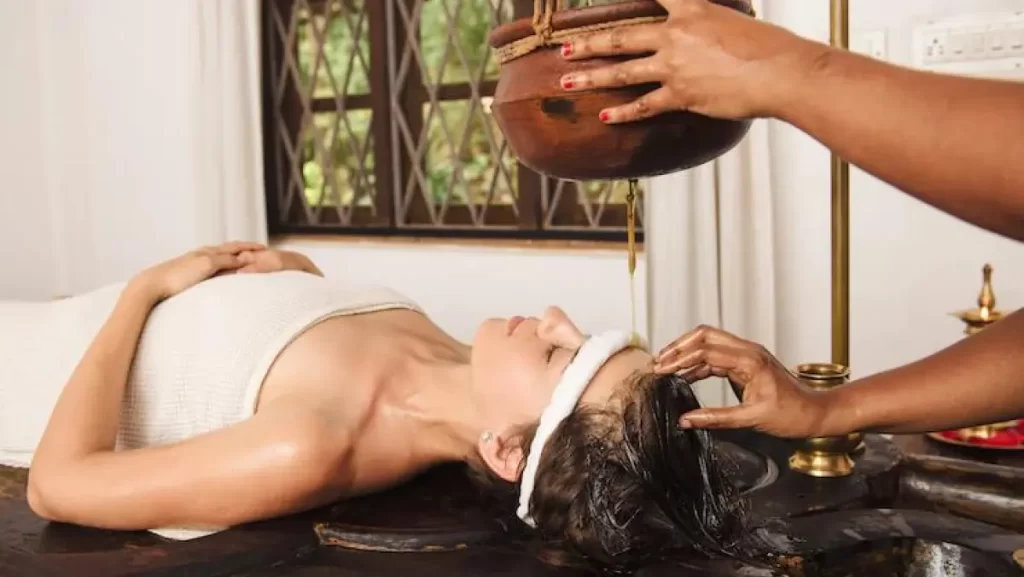Panchakarma Therapy: Ayurvedic Detoxification
Panchakarma is one of the most renowned therapeutic approaches in Ayurveda, focusing on holistic detoxification and rejuvenation of the body. It is a highly sophisticated, traditional Ayurvedic treatment that is aimed at eliminating toxins and restoring the natural balance of the body’s doshas: Vata, Pitta, and Kapha. The term "Panchakarma" translates to "five actions" or "five procedures," referring to the five main cleansing and purification techniques that form the core of this therapy. These techniques are designed to expel toxins and waste materials accumulated in the body, improving overall health and vitality.
Core Principles of Panchakarma
The philosophy behind Panchakarma revolves around the idea that the body, mind, and spirit are interconnected. When the balance of the three doshas (Vata, Pitta, and Kapha) is disrupted due to an unhealthy lifestyle, poor diet, stress, or environmental factors, it leads to the accumulation of toxins, known as ama in Ayurveda. This buildup can cause various physical and mental health issues. Panchakarma therapy aims to cleanse the body from within, eliminating ama and restoring dosha balance, thus promoting healing and rejuvenation.
The Five Procedures of Panchakarma
-
Vamana (Therapeutic Emesis)
Vamana involves the controlled induction of vomiting to remove excess Kapha dosha, especially from the respiratory and digestive systems. It is particularly effective for conditions such as asthma, bronchitis, and sinus congestion. The process is carried out using herbal decoctions and other Ayurvedic formulations that stimulate emesis.
-
Virechana (Purgation Therapy)
Virechana focuses on expelling excess Pitta dosha from the body, particularly from the liver and intestines. This is achieved through the administration of herbal laxatives, leading to controlled bowel movements. Virechana is beneficial for ailments such as hyperacidity, skin disorders, and liver problems, where excess Pitta is the underlying cause.
-
Basti (Medicated Enema)
Basti is one of the most effective therapies in Ayurveda for balancing the Vata dosha. In this procedure, medicated oils, herbal decoctions, or ghee are introduced into the colon via enema. This helps in detoxifying the colon, nourishing the tissues, and balancing Vata-related disorders such as arthritis, constipation, and neurological issues.
-
Nasya (Nasal Administration)
Nasya involves the administration of herbal oils or powders through the nasal passages. It is particularly effective in treating conditions affecting the head, neck, and respiratory system, such as sinusitis, migraines, and chronic headaches. Nasya helps in clearing excess Kapha from the nasal passages and improving overall respiratory health.
-
Raktamokshana (Bloodletting)
Raktamokshana is the process of blood purification and is often used in cases where there is an excess of Pitta or toxic blood conditions like skin diseases or infections. This technique can be done using leeches or other methods of bloodletting, aimed at reducing toxicity from the bloodstream and treating conditions like eczema, psoriasis, and abscesses.
Preparatory Procedures (Poorvakarma)
Before undergoing Panchakarma, certain preparatory procedures are employed to prepare the body for detoxification. These include:
- Snehana (Oleation Therapy): The application of medicated oils both internally and externally to soften the tissues and loosen toxins.
- Swedana (Sudation Therapy): Herbal steam therapy that helps in opening the channels and further liquefying toxins for easy elimination.
Benefits of Panchakarma
Panchakarma offers a wide range of physical, mental, and emotional benefits. Some of the key advantages include:
- Detoxification: It eliminates toxins from the digestive system, lungs, blood vessels, and nervous system.
- Rejuvenation: Panchakarma not only cleanses but also rejuvenates the body's tissues, enhancing vitality and overall well-being.
- Dosha Balance: By removing the excess of Vata, Pitta, and Kapha, it restores harmony to the body’s constitution.
- Improved Digestion and Metabolism: It boosts digestive fire (Agni) and enhances metabolism, which improves nutrient absorption and overall health.
- Stress Relief: Panchakarma therapies also help to calm the mind, reduce stress, and improve emotional health.
Conclusion
Panchakarma therapy is a profound Ayurvedic detoxification process that has been practiced for centuries. It goes beyond merely cleansing the body; it restores balance to the doshas, rejuvenates tissues, and enhances physical, mental, and spiritual well-being. For those seeking holistic healing, Panchakarma provides a deeply therapeutic approach that detoxifies and revitalizes the body, paving the way for lasting health.
